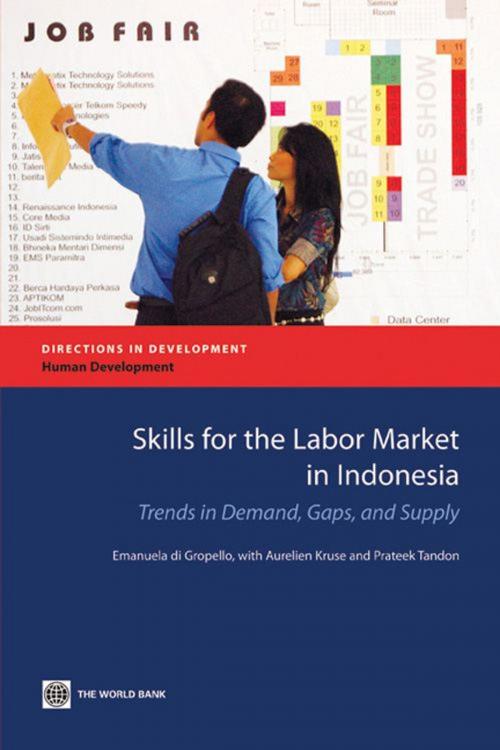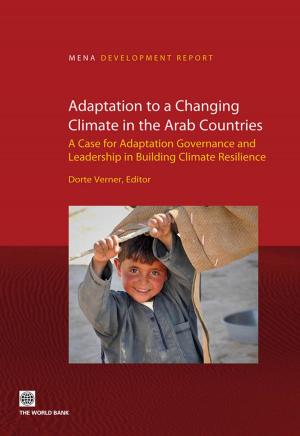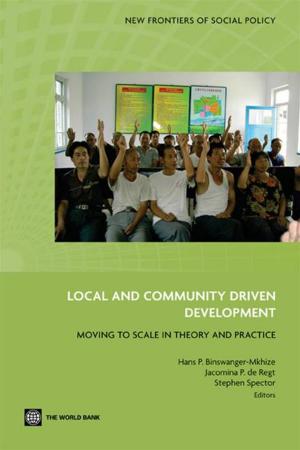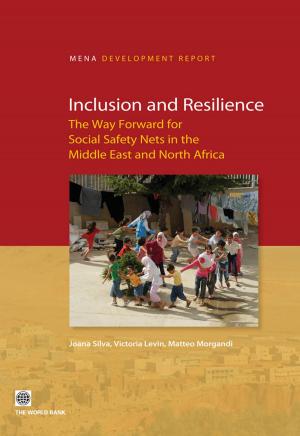Skills for the Labor Market in Indonesia: Trends in Demand Gaps and Supply
Business & Finance, Finance & Investing, Finance| Author: | di Gropello Emanuela; Kruse Aurelien; Tandon Prateek | ISBN: | 9780821386156 |
| Publisher: | World Bank | Publication: | March 18, 2011 |
| Imprint: | Language: | English |
| Author: | di Gropello Emanuela; Kruse Aurelien; Tandon Prateek |
| ISBN: | 9780821386156 |
| Publisher: | World Bank |
| Publication: | March 18, 2011 |
| Imprint: | |
| Language: | English |
In Indonesia the past two decades have been a time of great progress but also massive transformations and abrupt setbacks. In this context this book reviews the main characteristics of - and trends in - demand for skills in Indonesia. It seeks to document the existence of a possible skills mismatch between employer demands and the available supply the contribution of the education and training sector to this mismatch and possible measures to improve the education and training system?s responsiveness to what the labor market and the economy need. In today?s job market in Indonesia there appears to be a premium on theoretical and practical knowledge of the job. While skills do not appear to be yet among the most important constraints for the economy the situation is different for larger more export-oriented manufacturing firms. Subjective assessments of difficulties of matching needs with available skills provide evidence that skills are becoming an issue overall in Indonesia. The widest gaps across professional profiles are for English and computer skills followed by thinking and behavioral skills. Theoretical and practical knowledge of the job are also considered to be weak. There are important gaps in creativity computing and some technical skills for young workers. English remains the largest gap. Five general skill related priorities can be highlighted for Indonesia. First the country needs to improve skill measurement to get a fuller understanding of skill needs and gaps. Second it is urgent for Indonesia to address the still unsatisfactory quality and relevance of its formal education including higher education. Third the country needs to set-up multiple pathways for skill development. Fourth the country needs to develop an integrated approach to tackle skill development for youth. Fifth Indonesia should also tackle labor market constraints which affect the skill matching process.
In Indonesia the past two decades have been a time of great progress but also massive transformations and abrupt setbacks. In this context this book reviews the main characteristics of - and trends in - demand for skills in Indonesia. It seeks to document the existence of a possible skills mismatch between employer demands and the available supply the contribution of the education and training sector to this mismatch and possible measures to improve the education and training system?s responsiveness to what the labor market and the economy need. In today?s job market in Indonesia there appears to be a premium on theoretical and practical knowledge of the job. While skills do not appear to be yet among the most important constraints for the economy the situation is different for larger more export-oriented manufacturing firms. Subjective assessments of difficulties of matching needs with available skills provide evidence that skills are becoming an issue overall in Indonesia. The widest gaps across professional profiles are for English and computer skills followed by thinking and behavioral skills. Theoretical and practical knowledge of the job are also considered to be weak. There are important gaps in creativity computing and some technical skills for young workers. English remains the largest gap. Five general skill related priorities can be highlighted for Indonesia. First the country needs to improve skill measurement to get a fuller understanding of skill needs and gaps. Second it is urgent for Indonesia to address the still unsatisfactory quality and relevance of its formal education including higher education. Third the country needs to set-up multiple pathways for skill development. Fourth the country needs to develop an integrated approach to tackle skill development for youth. Fifth Indonesia should also tackle labor market constraints which affect the skill matching process.















